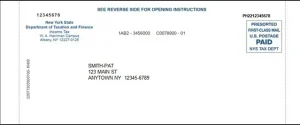Lead poisoning in China kindergartens

Recently, a kindergarten in Tianshui, Gansu, violated regulations by using additives, which caused abnormal blood lead levels in children, which aroused social concern.
After the incident, many parents of the kindergarten took their children to Xi’an Central Hospital in a neighboring province for examination and treatment. The examination results of a 5-year-old girl in the hospital showed that her blood lead test value was 379 micrograms/liter, which is moderate lead poisoning.
On July 4, the relevant person in charge of the Maiji District Government told China News Weekly that many people have been arranged to go to Xi’an to assist parents in taking children for examination and treatment, and the specific situation is to be counted.
According to relevant staff members who told China News Weekly on the 4th, the case is still under investigation. At present, it has only been confirmed that the kindergarten has violated regulations in the use of additives in food, but it has not yet been found out what specific seasonings or other items. According to their understanding, more than 200 children in the kindergarten involved underwent blood tests, and “more than 40 were above 100 (micrograms/liter)” (Note: The normal reference value for children’s blood lead testing should be lower than 100 micrograms/liter).
Some parents mentioned that when organizing a parent meeting on the morning of July 3, they mentioned that “three-color steamed cakes, corn bags and other things were found to have excessive lead, but there is no final result yet.” A staff member of the Tianshui Maiji District Market Supervision and Administration Bureau told the media that after the relevant departments intervened in the investigation, the food samples were sealed and taken away, and they did not know which specific additives caused the abnormal blood lead level in young children.
In this regard, the Propaganda Department of the Maiji District Committee told China News Weekly that it is still under investigation and the official announcement will be the basis for the follow-up.
Xinhua News Agency reported on the 3rd that a joint working group composed of relevant experts and relevant departments has been established locally to quickly carry out epidemiological investigation and tracing, medical insurance, investigation and disposal, and more than 200 test samples from the kindergarten involved have been sent to the Gansu Provincial Disease Control Department for re-examination. Experts have carried out medical treatment, nutritional intervention and psychological counseling for young children with abnormal blood lead, and other related investigations are also in progress.
Dozens of children with abnormal blood lead levels in Gansu have received cross-provincial diagnosis and treatment, and some children were found to have abnormal blood lead levels last year
On July 3, the Health and Health Bureau of Maiji District, Tianshui City, issued a “Situation Report” on the government website, saying that on July 1, the Market Supervision Bureau and the Public Security Bureau of Maiji District received reports from the public and found a case in which a kindergarten used additives in violation of regulations, resulting in abnormal blood lead levels in some children.
Several parents told Upstream News reporters that the kindergarten involved is called the Brownstone Peixin Kindergarten in Maiji District, Tianshui, Gansu. The kindergarten charges about 6,000 yuan per semester and is a relatively good private kindergarten in the local area. The kindergarten is divided into three grades: large, medium and small. There are about 30 children in each class, totaling about 200 people.
Public information shows that the Brownstone Peixin Kindergarten in Maiji District was established in 2022 with a registered capital of 500,000 yuan. Its business scope is day-care preschool education.
On July 3 and 4, Upstream News reporters learned from many parents of children with abnormal blood lead that their children had symptoms such as nausea, diarrhea, leg pain, stomach pain, hair loss, and lack of concentration.
Afterwards, some children were sent to a local hospital in Tianshui for treatment by their parents. On July 3, many parents began to take their children across provinces to Xi’an, Shaanxi for treatment.
Some parents said that as early as last year, they had found that their children had abnormal blood lead levels. The parent said that the child always complained of “stomach numbness” and did not eat well, so in May last year, they took the child to Xi’an for treatment.
According to the inspection documents provided by the parents, on May 27 last year, the inspection report of the Xi’an Children’s Hospital showed that the blood lead content was 156.6μg/L (micrograms per liter).
“At that time, the doctor at the Children’s Hospital also asked me if there were any heavy industrial enterprises near my home. I said no, and they couldn’t understand it.” The parent said that at first, she thought it was a problem with the water purifier at home, and then she changed the water purifier and tableware. After that, when the child was checked again during the summer vacation, the indicators were normal. “Later, there was a problem again when he went to school, and we didn’t think it was a problem with the kindergarten at the time.” The parent said.
The parent said that until June 29 this year, she heard from other parents that the problem might be in the kindergarten, and she took her child to the local hospital that day.
According to the trace element report form of Tianshui Second People’s Hospital on June 29 provided by the parents, the blood lead content was 274.71μg/L (micrograms per liter). On July 3, she tested the child again in the Occupational Disease Department of Xi’an Central Hospital, and the blood lead test value was 444μg/L (micrograms per liter).
Upstream News reporters obtained multiple test reports of children. As of now, the data obtained by Upstream News reporters show that in the Occupational Disease Department of Xi’an Central Hospital, a 5-year-old girl had the highest blood lead test value of 528μg/L (micrograms per liter). The normal reference value of the test report is less than 100μg/L (micrograms per liter) for children, 200μg/L (micrograms per liter) for adults, and the occupational exposure limit is 400μg/L (micrograms per liter).
According to Xinhua News Agency, a joint working group composed of relevant experts and relevant departments has been established locally to quickly carry out epidemiological investigation and tracing, medical security, investigation and disposal. More than 200 test samples have been sent to the Gansu Provincial Disease Control Department for re-examination.
However, at present, the families of the children interviewed said that they have not received the test data from Tianshui, Gansu.
On July 3, the pediatric inpatient department of Xi’an Central Hospital had admitted 19 children. On July 4, the number of families of children going to Xi’an for treatment began to increase, distributed in Xi’an Central Hospital, Xijing Hospital and Xi’an Children’s Hospital.
Xi’an Central Hospital is a well-known occupational disease diagnosis and treatment hospital in Shaanxi.
On July 4, in the Occupational Disease Department of Xi’an Central Hospital, children and their families who came to draw blood for testing lined up in a long queue. Due to the large number of people in line and limited testing machines, medical staff asked parents to take their children for testing in batches.
After the incident, how many children were tested in Xi’an Central Hospital? Medical staff refused to disclose the number, but one told Upstream News, “At least 50.”
Data collected by parents showed that as of the morning of July 4, 38 families of sick children had arrived in Xi’an.
Upstream News interviewed 16 parents of sick children, all of whom said that they paid for their tickets, accommodation and medical treatment in Xi’an to ensure that their children received effective treatment.
Administrative staff of Xi’an Central Hospital refused to disclose the data on the grounds of “patient privacy”, and only said that they had worked with provincial and municipal experts to do their best to ensure medical security and treat patients.
Tianshui has sent a special person to assist
Upstream News learned that because some parents brought their sick children to Xi’an, Tianshui has sent a special person to help.
Parents have also received text messages from the local area. The text message said: In order to allow your child to receive better examination and treatment, the district party committee and district government have arranged staff to go to Xi’an to provide you with diagnosis and treatment consultation, hospital registration, help connect beds, pick-up and other security services. If you encounter any difficulties and problems during your treatment in Xi’an, please contact us in time.
Upstream News reporters contacted a leading cadre based on the phone number provided in the text message. The other party admitted that he did come to Xi’an, but refused the interview on the grounds of “no time”.
“All information should be based on official releases. Our current goal is to get the baby to be diagnosed and treated quickly, and those with problems should be treated quickly, and put the baby first.” The cadre said.
On July 3, the Tianshui Maiji District Health and Health Bureau issued a “Situation Report” on the government website, saying that the Tianshui Municipal Party Committee and Municipal Government attached great importance to it and established a joint working group composed of relevant experts and relevant departments to quickly carry out epidemiological investigation and tracing, medical security, investigation and disposal. At present, the treatment, nutritional intervention, psychological counseling and other work of children with abnormal blood lead levels are being carried out in a scientific and orderly manner. The person in charge of the kindergarten involved has been filed for investigation. The relevant departments with regulatory responsibilities will be held accountable.
![]()







